by chandiniann | Nov 14, 2023 | Interesting Reads

Tree with gas mask, background with city in smog, global warming due to air pollution,
In a world filled with endless Netflix options, viral ‘nothing’ videos, and the constant pursuit of the perfect selfie angle, who has the time or energy to care about the environment? After all, what has the environment ever done for us, right?
Air Pollution Is The Perfume of Progress
Why breathe in crisp, fresh air when you can savor the sweet scent of industrial progress? Forget about those pesky oxygen-enriched forests; the aroma of exhaust fumes, cracker smoke – these are the real essence of modern life. After all, who wouldn’t want a daily dose of air pollution, ensuring that every breath is an adventurous struggle? Embrace the must-have experience of barely breathing and the anticipation of a delightful respiratory or other illness.
Who Needs Clear and Drinkable Water Anyway?
Crystal-clear rivers and oceans are so overrated. Who cares if marine life is swimming in a toxic cocktail of waste? It’s their version of a wild night out. Let’s just dump our garbage and chemicals into water bodies; the fish can learn to appreciate our modern art.
Building Landfills – the Eighth Wonder
Forget recycling and waste reduction; landfills are the new architectural marvels. Why have a pristine, garbage-free landscape when you can admire the beauty of towering heaps of discarded dreams? Call it a tribute to human creativity.

Because We’re the Boss
Nature is tough; it can handle a little abuse. Who cares if we encroach on wildlife habitats or contribute to the extinction of species? Animals will thank us for keeping them on their toes. Survival of the fittest, right?
Who Needs Compassion for Our Furry Friends?

Stray/community dogs and animals are just part of the urban scenery, right? Why bother with spaying and neutering programs or providing shelters when we can marvel at the sheer resilience of these animals as they navigate the concrete jungle? It doesn’t matter that they are cold, hungry, thirsty, stressed, and shunned — they’re practically honorary citizens.
But, in all seriousness, it might be worth considering that our dear planet Earth is not an infinite playground. As we nonchalantly contribute to the degradation of the environment and the severe ill-treatment of stray/community animals, we may find ourselves in a less-than-ideal living situation. Maybe, just maybe, it’s time to ditch the apathy and start caring about the only home we have. After all, clean air, water, a thriving ecosystem, and compassion for all living beings do have their perks.
But hey, who are we to judge? The environment and animals will probably sort themselves out, right? (Note: Extreme sarcasm intended)
by chandiniann | Nov 1, 2023 | Interesting Reads

Image Courtesy: Jagranjosh.com
As you make a transition from the college cocoon to join the world of work-corporations, governments, or businesses, this is an exhilarating change that will shape you up for good. Being a certified seasoned Emotional Intelligence (EI) practitioner, I know that improving your high EI can improve your abilities and skills required for professional development. Now let’s look into what EI can do in order to become your hidden power.
Self-Awareness
Self-awareness forms the foundational pillar of high emotional intelligence. It’s the bedrock upon which you gain insights into your emotions, strengths, weaknesses, and beliefs. Individuals who possess self-awareness are well-equipped to make career choices aligned with their passions and purpose. They not only recognize their personal triggers but also have the capacity to effectively manage stress, a vital skill in any professional setting.
Self-Regulation
Workplace conflicts are a part of professional life, but how you handle them can make a significant difference. Emotional Intelligence (EI) plays a crucial role in this context. By aligning your actions with the specific demands and needs of a situation, you not only navigate conflicts more effectively but also nurture closer relationships and make informed career choices.
Empathy
Empathy, being an important component of high EI, is vital within organizations. To build long-term and healthy relationships, one must understand and be able to relate emotionally with their colleagues, clients, and other stakeholders. This is vital in ensuring proper communication as well as resolution of conflicts.
Social Skills
Strong social skills form grounds for effective communication, teamwork, and leadership. Individuals with high EI perform well at various aspects that give rise to a conducive workplace for growth. It becomes easy to network and build relationships, which in turn opens windows of various business ventures.
Motivation
High EI fuels intrinsic motivation. It’s a motivator in pursuit of career objectives. When you have a strong focus on why you are doing something, and desire to succeed in it, then you have the drive to work hard in order to see yourself through.
Adaptability
Profession and practice changes at a rapid pace. Having high EI prepares you for change by making you adapt gracefully. It makes it possible for you to manage change, learn lessons from mistakes and continue being tough when situations seem unfavourable.
Finally
As you transition from college to the professional world, keep in mind the significance of emotional intelligence. High EI isn’t just a tool for achieving workplace success; it also fosters personal growth and fulfillment. It equips you with the skills to confidently and gracefully navigate challenges, while also enabling you to seize the opportunities that await you.
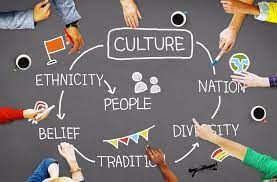
by chandiniann | Oct 31, 2023 | Interesting Reads
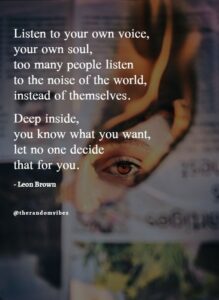
Image Courtesy: Pinterest
The depth of our inner world has an unspoken desire, a quiet dream that most of us are trying to understand. It is a journey to untangle the complex webs of our souls without any definite routes, making us lost in the vague world of our emotional impulses and erotic yearnings.
To others, they experience some internal war for pulling between their wishes and responsibilities, giving them a beautiful feeling of self-searching. On the other hand, some others say that they lose their own essence as they transform into another being.
This mysterious expedition frequently involves a feeling that something must be done even when the road ahead remains unclear. We know there is a problem somewhere, but what to change and how to effect the changes defy clear understanding.
This transition entails a shift away from dedicating the majority of our time and energy to fulfilling the expectations and wishes of others. Instead, it is a profound inner journey, a quest for spiritual growth, and the pursuit of profound serenity and joy in communion with our innermost selves.
This change that we are going through is a sign coming from the inmost center of our soul. Listening to this call prompts us along an adventure of being more than just alive but prospering. Nevertheless, when we decide to ignore that, our body and mind could be loaded with consequences of our apathy.
In its subtle wisdom, the soul keeps whispering to us the entire time, offering the inner compass that leads us on the path of living our deepest truths. It demands that we become attuned and walk towards being authentic, true, and meaningful living. Are we listening?

by chandiniann | Oct 27, 2023 | Interesting Reads
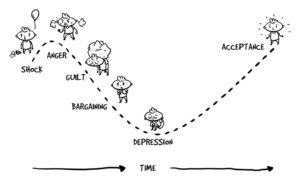
Image Courtesy: Stephanie Fattorini
Loss is an intrinsic part of our journey through life, and it takes many forms. It can be the loss of a job, a cherished relationship, a dream unfulfilled, or any significant change that alters the course we have set for ourselves. Believe me when I say that I have dealt with all of these losses in a variety of ways. (You probably have too). Dealing with loss, in all its variations, can be a tumultuous and emotionally challenging experience.
Acknowledging Emotions
EI begins with recognizing emotions. Grief, anger, and sadness accompany loss. Acknowledge these feelings without judgment, as a first step towards healing.
Self-Awareness
Developing EI means understanding your emotional responses. Self-awareness forms a strong foundation for coping and moving forward.
Empathy for Self
EI extends empathy towards yourself. Be kind during the healing process; it’s okay to take your time. Don’t let anyone tell you otherwise.
Compassionate Communication
EI enhances effective communication, crucial when reaching out to others affected by loss. Compassionate communication forges stronger connections and support networks.
Building Resilience
EI equips you to build resilience, vital for adapting to change and bouncing back from setbacks.
Motivation for Change
EI ignites the motivation to seek positive change. Loss catalyzes personal growth and transformation.
Seeking Professional Help
Recognize when loss becomes overwhelming and seek professional assistance. EI embraces this acknowledgment.
Loss is universal, challenging yet transformative. Embracing Emotional Intelligence provides emotional tools for coping, adapting, and thriving in the face of loss. It’s not about suppressing emotions but understanding and navigating the storm of loss with grace and resilience. Through this journey, loss, in all its forms and shapes can elevate our lives.
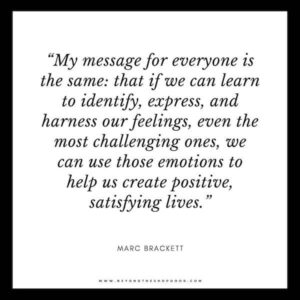
by chandiniann | Oct 26, 2023 | Interesting Reads

In the complex landscape of relationships, Emotional Intelligence (EI) stands as a beacon of hope for couples facing turbulence. This article explores the profound role of EI in mending fractured bonds and improving communication when things aren’t going smoothly.
Navigating Emotional Storms
In times of emotional turmoil, EI becomes an anchor. It involves recognizing and regulating one’s emotions while also embracing a deep understanding of their partner’s feelings. This foundation of self-awareness and empathy can be instrumental in de-escalating conflicts.
The Art of Meaningful Exchange
Effective communication is the lifeline of relationships, and EI is the secret ingredient to nurture it. It empowers couples to create a safe space for candid conversation, emphasizing active listening and open dialogue. By expressing themselves honestly and empathetically, couples can bridge the gaps that often lead to misunderstandings.
Bridging Differences with Emotional Intelligence
In the face of disputes, Emotional Intelligence equips partners with the skills to find common ground. It fosters resolution strategies rooted in compromise rather than confrontations, shifting the focus from blame to a solution-oriented approach.
A Brighter Tomorrow Together
While developing EI as a couple requires effort, the rewards are boundless. Couples who integrate EI into their relationship dynamics create an environment characterized by respect and unwavering support, strengthening their bond for the years ahead.
In the realm of relationships, Emotional Intelligence is a lifeline. It mends the torn fabric of love, fosters understanding, and weaves an enduring connection based on empathy and open communication.

Image Courtesy: Pinterest
by chandiniann | Oct 23, 2023 | Interesting Reads
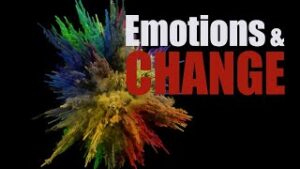
Image Courtesy: Six Seconds
In the ever-evolving business realm, change is a constant (as it is in every aspect of our lives). Organizations that can adapt swiftly to new circumstances are the ones that thrive. However, managing change effectively isn’t just about strategy and planning; it’s also about understanding and harnessing the power of Emotional Intelligence (EI).
What is Emotional Intelligence?
Emotional Intelligence, often referred to as EI or EQ, is the ability to recognize, understand, and manage our own emotions and the emotions of others. It encompasses self-awareness, self-regulation, empathy, and effective communication. In change management, EI plays a pivotal role in leading and navigating transformations successfully.
Empathy Fuels Understanding
Change is often met with resistance and fear. People are naturally inclined to be wary of the unknown. Empathy (a key component of EI) plays a crucial role in this context. An emotionally intelligent leader understands the concerns and anxieties of their team. By listening and acknowledging these emotions, they can create a more receptive environment for change. Empathy thus builds trust, and trust is essential for change management.
Effective Communication
Clear and empathetic communication is a cornerstone of change management. Leaders with high EI can convey the need for change in a way that resonates with their team, making it more likely that the team will ‘buy into’ the process. Furthermore, emotional intelligence allows leaders to address concerns and answer questions in a way that reassures employees.
Adaptability
Change sometimes goes differently than planned. It’s crucial to be adaptable and flexible. Leaders with high EI can adjust to unforeseen challenges while maintaining their composure and ensuring their teams stay motivated. They understand that setbacks are part of the journey and handle them with resilience.
Self-Management
Leaders who possess strong self-regulation skills are less likely to be derailed by their own negative emotions during the change process. They can stay focused, manage stress, and inspire their teams with a sense of calm and control.
Building a Culture of EI
To truly harness the power of EI in change management, organizations need to foster a culture of emotional intelligence. This starts with leadership setting the example and encouraging its development throughout the team. Training and workshops can help employees understand and improve their emotional intelligence skills. (Connect with me chandini.khanna@gmail.com)
In a world where change is the only constant, leaders who understand the emotional dimensions of change and employ Emotional Intelligence as a tool for transformation will stand out. They are not just managing change but leading their teams through it, creating an environment where people thrive and embrace new challenges. Harness the power of Emotional Intelligence, and you’ll find that change becomes not just a challenge to overcome but a path to growth and success.
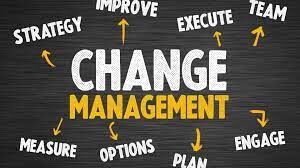
Image Courtesy: Evalueserve













